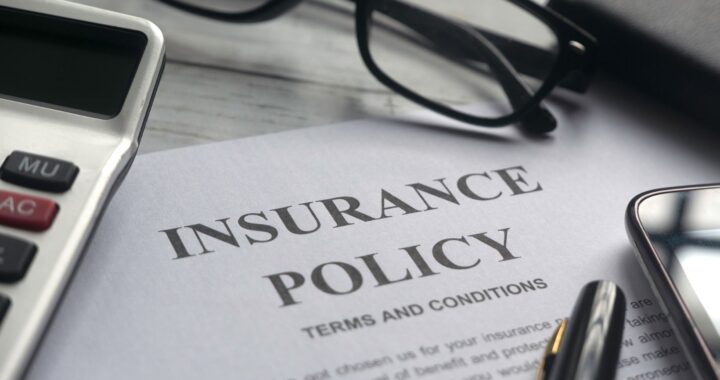The Impact of Sleep on Addiction Recovery

Struggling with addiction can take a toll on both the body and mind, making the journey to recovery a challenging one. As someone who has delved into the intricate relationship between sleep and addiction, I’ve discovered a crucial yet often overlooked factor in the recovery process – quality sleep. In my exploration of this topic, I’ve uncovered how adequate rest can significantly influence the success of individuals striving to break free from the grips of addiction.
Through my research and experience, I’ve come to understand that sleep plays a vital role in restoring the brain’s functions and aiding in emotional regulation during addiction recovery. In this article, I’ll delve into the impact of sleep on addiction recovery, shedding light on the importance of prioritizing healthy sleep habits as part of a comprehensive approach to overcoming addiction.
Understanding the Role of Sleep in Addiction Recovery
How Sleep Affects the Brain
Sleep plays a vital role in the brain’s functions, especially during addiction recovery. When I focus on improving my sleep quality, it helps in restoring cognitive functions that may have been impaired due to addiction. Adequate sleep allows for proper neural connections to form and enhances memory consolidation. As an individual in recovery, ensuring I prioritize quality sleep can significantly impact how effectively my brain can heal and recover from the effects of addiction.
The Connection Between Sleep and Emotional Regulation
Emotional regulation is crucial in addiction recovery, and sleep plays a key role in this process. When I maintain a consistent sleep schedule and obtain sufficient rest, it positively influences my emotional well-being. Quality sleep supports the regulation of emotions, reducing mood swings, irritability, and stress levels that are commonly experienced during recovery. As I focus on improving my sleep patterns, I can enhance my ability to manage emotions effectively, leading to a more stable and successful recovery journey.
The Negative Effects of Poor Sleep on Recovery
Increased Risk of Relapse
Lack of quality sleep can significantly increase the risk of relapse during addiction recovery. When I’m not getting enough rest, my body and mind are more vulnerable to cravings and impulsivity.

Poor sleep quality can weaken my decision-making abilities, making it harder for me to resist the temptation of relapsing. It’s crucial for me to prioritize good sleep hygiene to reduce the chances of setbacks in my recovery journey.
Impact on Mental Health Conditions
Inadequate sleep can also have a detrimental impact on my mental health conditions, exacerbating symptoms such as anxiety and depression. When I’m sleep-deprived, I may experience heightened stress levels and emotional instability, making it challenging to cope with the psychological aspects of addiction recovery. By ensuring I get sufficient and restful sleep, I can better manage my mental health and enhance my overall well-being during the recovery process.
Strategies to Improve Sleep During Recovery
Establishing a Sleep Routine
Maintaining a consistent sleep schedule is vital in supporting the recovery process from addiction. I recommend setting a regular bedtime and wake-up time to regulate your body’s internal clock. By going to bed and waking up at the same times each day, you can train your body to anticipate sleep, leading to improved sleep quality.

It’s important to create a relaxing bedtime routine that signals to your brain that it’s time to wind down. Activities such as reading a book, taking a warm bath, or practicing deep breathing exercises can help calm your mind and prepare you for restful sleep.
Natural Sleep Aids That Help in Recovery
Incorporating natural sleep aids into your bedtime routine can enhance the quality of your sleep during the recovery process. I suggest trying melatonin supplements, which are available over the counter and can help regulate your sleep-wake cycle. Additionally, herbal teas like chamomile or valerian root have calming properties that promote relaxation and improve sleep quality professional help. It’s important to consult with your addiction treatment professional before using any sleep aids to ensure they are safe and suitable for your recovery journey. Creating a supportive sleep environment, free from distractions and conducive to relaxation, can also contribute to better sleep outcomes.

 How to Maximize Your Rehab Insurance Benefits
How to Maximize Your Rehab Insurance Benefits  Everything You Need to Know About Car Transport for a Big Move
Everything You Need to Know About Car Transport for a Big Move  Why DUI Accidents Demand The Expertise Of A Lawyer
Why DUI Accidents Demand The Expertise Of A Lawyer  Bikini Underwear: Finding the Perfect Fit for All-Day Comfort
Bikini Underwear: Finding the Perfect Fit for All-Day Comfort  How to Satisfy Your Taco Cravings in Minutes by Ordering Tacos Online
How to Satisfy Your Taco Cravings in Minutes by Ordering Tacos Online  Finding a Luxury Resort in Belize
Finding a Luxury Resort in Belize